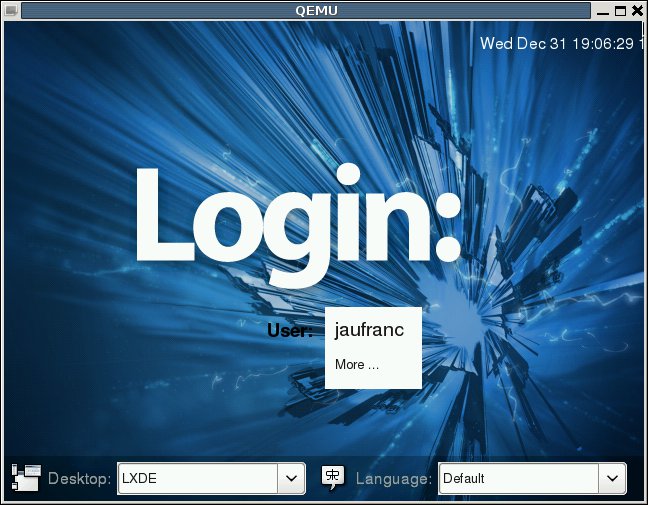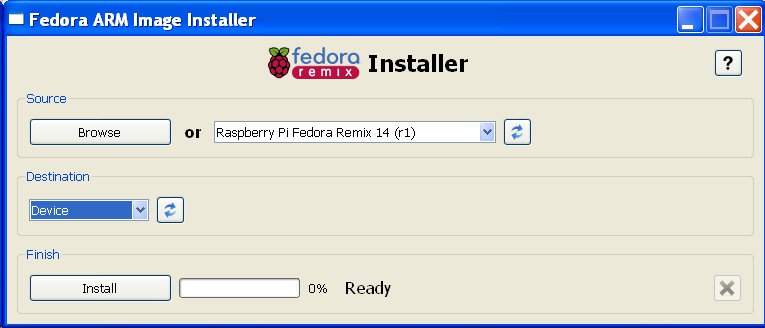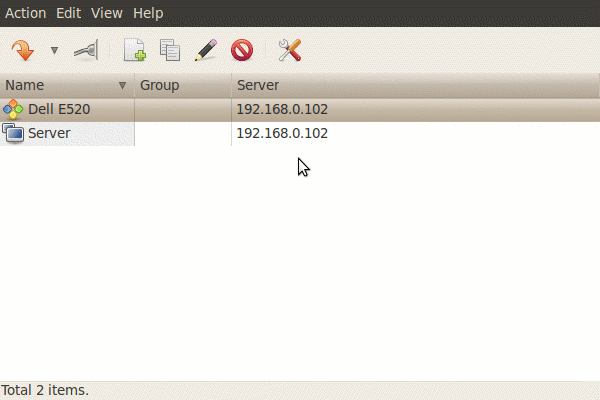Last week, Collabora and Fluendo jointly announced the release of an open source software development kit (SDK ) for GStreamer multimedia framework. The SDK aims at easing the integration of Gstreamer into projects and provides a pre-built version of the framework which is available for Linux, Windows and Mac OS X. GStreamer is used in many Linux applications such as media players (Rhythmbox, Banshee and Amarok), video editors (PitiVi), and media centers such as XBMC among other applications. It’s also often the framework used to play videos on ARM platforms with implementations for OMAP 4/5 and devices compliant with the OpenMAX standard. Gstreamer website has also been updated and provides links to download GStreamer SDK and documentation on the home page. The new documentation looks pretty good with fives main sections: Instructions for installing the SDK on Linux (Ubuntu, Debian and Fedora), Windows or Mac OS. 11 basic and 2 advanced tutorials. […]
How To Let Sudo Insult You When You Type the Wrong Password
This is a completely useless post, but it’s possible to configure sudo to return insults instead of the default error message when you type the wrong password. To enable this feature, edit /etc/sudoers (with visudo for example) and change the line:
|
1 |
Defaults env_reset |
to :
|
1 |
Defaults env_reset,insults |
Open a terminal windows as a normal user, type a command with sudo and input the wrong password. Here are a few examples: $ sudo bash [sudo] password for testman: xxx Are you on drugs? [sudo] password for testman: xxx Maybe if you used more than just two fingers… [sudo] password for testman: xxx Listen, burrito brains, I don’t have time to listen to this trash. [sudo] password for testman: xxx You silly, twisted boy you. [sudo] password for testman: xxx What, what, what, what, what, what, what, what, what, what? [sudo] password for testman: xxx You do that again and see what happens… [sudo] […]
Instructions to Run Raspberry Pi Fedora 14 Remix in QEMU
As mentioned in my previous post, the Raspberry Pi Foundation has just released the Fedora 14 Remix SD card image that can be installed either via installer (easiest method) or using dd / windd as with the previous image. In this blog post, I’ll give the instructions how to run Raspberry Pi Fedora 14 Remix in QEMU using a similar method than the one I used for Debian Squeeze. I tested since in machines with Ubuntu 10.04 LTS and Debian 6.0.4. Download the image using BitTorrent raspberrypi-fedora-remix-14-r1.img.gz.torrent or via the HTTP link available on Raspberry Pi Download page. Decompress the image:
|
1 |
gzip -d raspberrypi-fedora-remix-14-r1.img.gz |
Download kernel 3.0.4 image for qemu, if you don’t have it yet.
|
1 |
wget http://dl.dropbox.com/u/45842273/zImage |
Since the rootfs is full (in the real board it will be resized to the size of the SD Card), we need to increase the size of the rootfs partition. First create and empty 3G […]
Raspberry Pi Fedora 14 Remix Available for Download
Seneca has officially released Raspberry Pi Fedora 14 Remix, the main distributions for the Raspberry Pi low cost ARM11 board based on Broadcom BCM2835. There are two methods to install Fedora 14 for the Raspberry Pi on the SD Card: Using the Installer This method is available for: Fedora 16 – http://files.velocix.com/c1410/fedora/installer/fedora/fedora-arm-installer-1.0.0-1.fc16.noarch.rpm Windows Vista or Windows 7 – http://files.velocix.com/c1410/fedora/installer/windows/fedora-arm-installer-1.0.0.zip Other Linux (Python) – http://files.velocix.com/c1410/fedora/installer/source/faii-1.0.0.tar.gz For details on the installation procedure, go to http://zenit.senecac.on.ca/wiki/index.php/Raspberry_Pi_Fedora_Remix_Installation Using dd This is the method used for the previous Linux images released for the Raspberry Pi. You can download it via Bittorrent. The HTTP download links are not yet available but will be soon on Raspberry Pi Download page. The Raspberry Pi Fedora Remix 14 is based on the following: Fedora package collection version: 14 Kernel version: 3.1.9 Architecture: armv5tel The Raspberry Pi Fedora Remix 17 will be the second version of the Remix released: Release […]
How to Install Windows 8 in Linux with QEMU
Microsoft has just released Windows 8 Consumer Preview. Here’s a method to install Windows 8 in Linux using KVM and Qemu. You can use this beta version of Windows 8 until the 15th of January 2013, after which it will be unusable. Here are the requirements to install Windows 8: 1 GHz Processor or greater 1 GB RAM 20 GB free storage for the 64-bit version Before you start, make sure your processor supports Intel Virtualization Technology (VT) or AMD’s AMD V CPU virtualization extensions. Type this command to check vmx or svm flags:
|
1 |
egrep --color "(vmx|svm)" /proc/cpuinfo |
If this is the case, you can install KVM. Type the following command for RPM-based distributions such as Fedora:
|
1 |
sudo yum install kvm |
or the following command for Debian or Ubuntu:
|
1 |
sudo apt-get install qemu-kvm |
Then download the ISO image of Windows 8 on Microsoft website (64-bit version) :
|
1 |
wget http://iso.esd.microsoft.com/WCPDL/BD1B8A49393E30CC9C4E5C88457D73E964F1F3B18/Windows8-ConsumerPreview-64bit-English.iso |
Create a 20 GB virtual hard drive to install Windows 8: […]
Seneca Uses GuruPlug Server Farm to Build Raspberry Pi Fedora Distribution
Prior to the Raspberry Pi Fedora 14 Remix launch party, Seneca has uploaded a video showing the work they have done to have Fedora 14 work on Raspberry Pi. Here are some interesting points ion this video: All basics application such as a web browser, office suite, the components you need to build a LAMP (Linux, Apache, MySQL, PHP) server… are already working. 2D graphics acceleration is not implemented yet, so the first release may feel a bit sluggish. But eventually, since the Raspberry Pi has a pretty good GPU, 2D support (OpenVG in Cairo library?) will be implemented at some points in time, either by Seneca or other people in the development community. Seneca uses around 60 ARM devices in their build farm that generates all the binaries for the Fedora ARM Remix release (e.g. the ones you can get with “yum install”) and among those device there are […]
Raspberry Pi Linux Distribution: Raspberry Pi Fedora Remix 14
Several operating systems will be able to run on the Raspberry Pi boards. However, the Raspberry Foundation had announced that they were working with Red Hat to deliver a Fedora release optimized for the board and Broadcom BCM2835 processor (ARMv6 + hard-float support). It appears the full name of this distribution is “Raspberry Pi Fedora Remix 14” most probably based on Fedora 14 (as the name implies), and not the latest Fedora 16 release. This Linux distribution will officially be launched on the 22nd of February 2012 at the Seneca Centre for the Development of Open Technology in Toronto, Canada during a 2-hour event (15:00-17:00) featuring: A hands-on opportunity to use a Raspberry Pi Live demonstrations of the Raspberry Pi Fedora Remix software Examples of the educational uses of the Raspberry Pi The 60-computer build farm used to build the Fedora ARM software on which the remix is based Information […]
Remmina : Remote Connection via RDP, VNC, SSH, XDMCP or SFTP
If you need to connect to both Windows and Linux machines remotely, Remmina is what you need. It is an application that can remotely connect to server using VNC, SSH, XDMCP, SFTP and RDP protocols. So that you can connect to a Windows machine using the default RDP (Remote Desktop Protocol) protocol without installing a VNC server. In the screenshot below I setup a Windows RDP and a VNC connection to 192.168.0.102. There are plenty of options. Here’s a screenshot of Remote Desktop Preferences for the RDP client. To install in an Ubuntu or Debian distribution:
|
1 |
sudo apt-get install remmina |
To install it in Fedora:
|
1 |
sudo yum install remmina |
Jean-Luc Aufranc (CNXSoft)Jean-Luc started CNX Software in 2010 as a part-time endeavor, before quitting his job as a software engineering manager, and starting to write daily news, and reviews full time later in 2011. www.cnx-software.com






